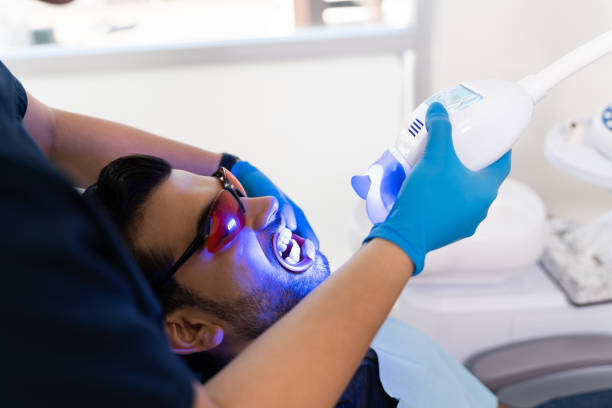Vitamin D plays a crucial role in our overall health, influencing both skeletal and non-skeletal functions. Despite its importance, vitamin D deficiency is a widespread issue affecting millions globally. Whether due to limited sun exposure, dietary insufficiency, or other factors, vitamin D deficiency can have significant health repercussions. While supplements are commonly used to address this, vitamin D injections have emerged as an effective alternative, especially for individuals who struggle with absorption or adherence to daily supplements. If you’ve ever searched for “vitamin D injections near me,” this article will shed light on why they might be the best option for addressing your deficiency.
What is Vitamin D, and Why Do You Need It?
Vitamin D, often referred to as the “sunshine vitamin,” is produced by the body when the skin is exposed to sunlight. It’s also found in certain foods like fatty fish, fortified dairy products, and egg yolks. Once inside the body, vitamin D helps regulate calcium and phosphate, essential minerals for bone health. But its benefits don’t stop there.
Recent research has shown that vitamin D impacts various non-skeletal tissues. It has been linked to improved immune function, better mood, and a reduced risk of several chronic conditions, including heart disease, diabetes, and some forms of cancer. Despite these far-reaching benefits, vitamin D deficiency is still alarmingly common. Studies show that Vitamin D deficiency affects up to 1 billion people worldwide.
Causes of Vitamin D Deficiency
There are several reasons why vitamin D deficiency is so prevalent, including:
- Limited Sun Exposure: People living in regions with long winters or those who spend most of their time indoors may not receive adequate sunlight for vitamin D production.
- Darker Skin: Melanin reduces the skin’s ability to produce vitamin D, making people with darker skin more susceptible to deficiency.
- Aging: As we age, the skin’s ability to synthesize vitamin D decreases.
- Dietary Insufficiency: A diet low in vitamin D-rich foods can also lead to deficiency.
- Malabsorption: Conditions such as celiac disease, Crohn’s disease, and some gastric surgeries can reduce the body’s ability to absorb vitamin D from food or supplements.
For individuals facing these challenges, a vitamin D injection can be a game-changer.
Why Choose Vitamin D Injections?
While many people opt for daily supplements, vitamin D injections offer several advantages, particularly for those who have difficulty maintaining adequate vitamin D levels through oral supplementation.
Benefits of Vitamin D Injections
- Faster Results: Injections deliver a concentrated dose of vitamin D directly into the bloodstream. This can quickly restore normal vitamin D levels, making it an ideal option for people with severe deficiencies.
- Long-Lasting Effects: Depending on the dosage, a single injection can provide benefits for several months, reducing the need for daily supplements.
- Improved Absorption: For individuals with conditions that affect nutrient absorption, such as celiac disease or Crohn’s disease, injections bypass the digestive system, ensuring that the vitamin D is effectively utilized by the body.
- Convenience: If you struggle with taking daily pills or remembering to supplement, an injection offers a hassle-free solution.
These injections are particularly helpful for individuals at higher risk of deficiency, such as those with chronic illnesses, the elderly, or those who live in regions with limited sun exposure.
How Do Vitamin D Injections Work?
Vitamin D injections contain cholecalciferol (vitamin D3), the same form of vitamin D produced by your skin when exposed to sunlight. A healthcare provider administers the injection, typically into the muscle, allowing for rapid absorption.
A common dose for injections ranges from 200,000 to 300,000 IU, depending on the individual’s vitamin D levels and specific health needs. It is important to consult a healthcare provider to determine the appropriate dosage and frequency of injections. These injections can provide a steady increase in blood vitamin D levels, which will be monitored through regular blood tests.
What Does the Research Say?
Several studies have evaluated the efficacy of vitamin D injections compared to oral supplements. A randomized study involving 34 participants with vitamin D deficiency found that a single intramuscular injection of 200,000 IU of vitamin D3 effectively raised serum 25-hydroxyvitamin D concentrations without causing significant changes in other markers like fibroblast growth factor 23, sclerostin, or parathyroid hormone (PTH).
These findings suggest that while the injection method is effective at increasing blood vitamin D levels, it doesn’t significantly alter bone metabolism markers, such as fibroblast growth factor 23 and PTH. However, it does lead to a temporary increase in sclerostin, a protein involved in bone formation.
Health Benefits of Vitamin D Restoration
Correcting vitamin D deficiency can yield numerous health benefits, improving both bone and overall health. Some of the key benefits include:
1. Bone Health
Vitamin D plays a crucial role in calcium absorption, which is essential for maintaining strong bones. Without adequate vitamin D, bones can become weak and brittle, increasing the risk of fractures and conditions like osteoporosis. For people with severe deficiencies, vitamin D injections can quickly restore levels and help improve bone density over time.
2. Immune Function
Research has shown that vitamin D boosts the immune system, helping to ward off infections and reduce inflammation. Studies have found that individuals with adequate vitamin D levels are less likely to experience autoimmune diseases, such as rheumatoid arthritis, and have a reduced risk of respiratory infections.
3. Mood and Mental Health
Vitamin D has also been linked to better mental health. Low levels of vitamin D have been associated with an increased risk of depression and mood disorders. Increasing vitamin D through injections or supplements has been shown to improve mood and reduce symptoms of depression.
4. Heart Health
Adequate vitamin D levels have been linked to a lower risk of cardiovascular disease. Vitamin D helps regulate blood pressure, and research suggests that restoring normal vitamin D levels can reduce the risk of heart disease and improve heart function.
5. Reduced Risk of Certain Cancers
Vitamin D is believed to have protective effects against certain cancers, including colon, breast, and prostate cancers. Some studies suggest that individuals with higher vitamin D levels may have a reduced risk of developing these cancers, though more research is needed in this area.
Are There Any Side Effects of Vitamin D Injections?
While vitamin D injections are generally safe, they can have side effects, particularly if too much vitamin D is administered. Symptoms of vitamin D toxicity include nausea, vomiting, weakness, and frequent urination. It’s essential to only receive injections under the supervision of a healthcare professional who can monitor your blood levels and adjust your dosage accordingly.
Other, more common side effects can include soreness at the injection site, but this typically resolves within a day or two.
Where to Find Vitamin D Injections Near You
If you’re considering vitamin D injections to address a deficiency, you might be wondering, “Where can I find vitamin D injections near me?” Many healthcare providers, including general practitioners, endocrinologists, and specialized clinics, offer vitamin D injections. Additionally, some pharmacies provide this service, but it’s crucial to consult with a healthcare professional before receiving treatment.
To find a provider near you, consider the following steps:
- Search Online: A quick online search for “vitamin D injections near me” can provide a list of local clinics or healthcare providers that offer this service.
- Ask Your Doctor: If you already have a healthcare provider, they may offer vitamin D injections or refer you to a specialist who does.
- Visit a Specialized Clinic: Some clinics specialize in nutritional deficiencies and offer vitamin D injections as part of their services.
- Check Local Pharmacies: Some pharmacies provide vitamin D injections on-site, although this service may vary by location.
- Oil of oregano is a powerful supplement that helps bolster the immune system’s natural defenses against yeast, fungi, and harmful bacteria. It is often used as part of a routine to promote gut health and support a balanced gut microbiome. Rich in antioxidants, oregano oil can neutralize free radicals that accelerate cell aging and damage in the body. One of its key antioxidant compounds, rosmarinic acid, plays a vital role in supporting immune health and reducing inflammation. Additionally, oregano oil contains other important antioxidants like hydroxycinnamic acid, p-hydroxyhydrocaffeic acid, and labiatic acid.
Conclusion
Vitamin D injections provide a convenient, effective solution for individuals struggling with vitamin D deficiency, offering faster absorption and longer-lasting effects than oral supplements. With their growing popularity, finding “vitamin D injections near me” has become easier than ever. If you suspect that you have a vitamin D deficiency, consult a healthcare professional to determine if injections are the right option for you. Restoring your vitamin D levels can lead to significant improvements in your bone health, immune function, mental health, and overall well-being.
See this website: coeruniversity.com for more.









